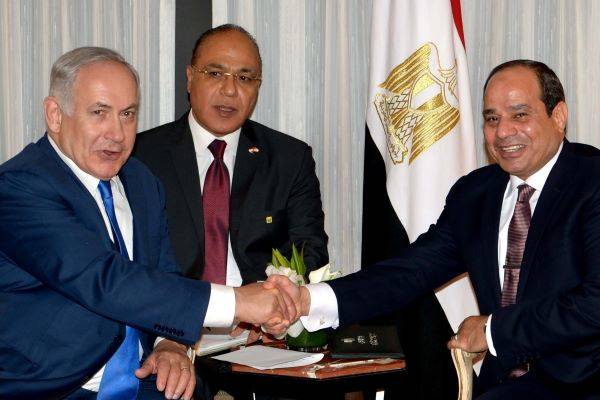The Iranian threat has ironically created the conditions under which “peace will ultimately be achieved,” the Israeli prime minister said at the Christian Media Summit in Jerusalem.
By Noa Amouyal, JNS via Israel Hayom
The Arab world’s perception of Israel is undergoing a seismic shift, Israeli Prime Minister Benjamin Netanyahu said on Sunday.
Addressing a 200-strong crowd in Jerusalem at the kick-off event of the Christian Media Summit and inauguration of the Friends of Zion Museum’s new media center, Netanyahu said Israel has gone from being perceived as an enemy in the region to being seen as an “indispensable ally.”
“Something very big is happening: the transformation of Israel in the minds of many in the Middle East. It’s no longer being perceived as an enemy. We’ve become an indispensable ally against the enemy of militant Islam,” he said.
As evidence, Netanyahu cited the lack of violence following U.S. President Donald Trump’s recognition of Jerusalem as the capital of Israel and then later of Israel’s sovereignty over the Golan Heights.
“People said there would be a tremendous convulsion. But what happened? Nothing,” said Netanyahu.
The Friends of Zion Museum in Jerusalem is an interactive facility that harnesses Christian support to combat BDS and anti-Semitism.
The impetus behind the Arab world beginning to band together with Israel, said Netanyahu, was Iran. Israel’s goal, he said, was “to make sure that Iran does not develop nuclear weapons and that its march toward an empire and conquest has stopped.”
Netanyahu praised U.S. President Donald Trump’s decision to impose hefty economic sanctions on Iran to curb its nuclear program, but said that “if Israel was not here, Iran would already have nuclear weapons.”
“The Arab states recognize that this [Iranian] militancy is a danger to them no less than it is a danger to us,” said Netanyahu, “so they’ve made a common cause with us to defeat a common foe.”
Normalization Beyond Security and Diplomacy
This normalization, he said, has spilled over to areas that go beyond security and diplomacy, seeping into technological and economic collaboration. The prime minister said this marked a “clear shift,” and added that “this is the way peace will ultimately be achieved.”
Netanyahu cautioned, however, that common goals don’t translate to common values.
“These aren’t Western democracies,” he said, “but they also understand that unless we cooperate we could be threatened by a great, evil power.”
To find common values, he said, Israel looked to the evangelical Christian community, of which there was a large delegation present at the event. He hailed them as “great believers in the Judeo-Christian tradition,” and said Israel had “no better friends in the world than our Christian friends.”
He recalled Theodore Herzl’s early supporters who were not fellow Jews, but Christian Zionists who believed in his cause.
Netanyahu further vowed that Israel would continue to be a bastion of religious freedom in the region.
“We have a common cause to protect Christians, Yazidis, Muslims and Jews everywhere, and to protect our view of civilization, which protects individual rights and guarantees freedom,” he said.
Turning to the “new anti-Semitism,” Netanyahu said the best way to combat it was not merely to fight it, but to “expose these delegitimizers.”
“Who do they stand with? They stand with Hamas—who shoot people in the back of the head … in Gaza. They stand with [Islamic State], who beheads people. They stand with Iran, the ‘great protector of human rights.’ This is who they stand for, and this too needs to be exposed.”
It wasn’t sufficient for Israel and its friends to remain on the defensive, he concluded—they need to go on the offensive and “delegitimize the delegitmizers.”
This article first appeared in Israel Hayom.
